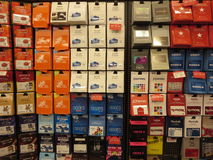Prepaid cards

In personal risk management, I consider prepaid cards as excellent tools for managing various risks without compromising many of the benefits that we receive from traditional credit and debit cards for large amount transactions.
A while back, my daughter was traveling with her classmates to visit Washington DC and she was required to carry some cash for lunch and limited gift shopping. As I considered her risk of carrying cash, the only risk that I identified was the loss or theft of money. Although she was not going to starve or become homeless if she lost her money while travelling with the supervised group, I was determined to minimize the risk. I knew that there were prepaid cards that I could buy but I did not know that there were basically two types of prepaid cards until I started shopping for one. One kind was a breed between a store gift or royalty card and a traditional credit card. This type of prepaid cards is for people who want to build their credit such as college students and people with bad credit. You basically buy a card at a store which sells them with a nominal fee of a few dollars between $1 and $10 and then register the card online to automatically load money on the card every month to spend but the trick is that there are fees for everything from ATM withdrawal to account balance inquiry to account reload inactivity. The benefits are that the cardholders build credit by proving that they can contribute and spend a few hundred dollars each month. Each card requires a minimum monthly cash reload or would be charged inactivity fees. The prepaid Visa and MasterCard companies make money with various fees received from cardholders as described above and transaction fees from merchants.
I settled with the second type of prepaid cards. These prepaid MasterCard and Visa cards require the purchase of cards with a predetermined amount of credit balance. They still require a nominal fee of a few dollars between $1 and $10 to be purchased plus the amount of credit available on the card. These cards have no cash reload requirements or fees. Basically you use the available credit balance that you initially purchased as often as you want until the credit balance is depleted. You decide upfront how much you need and buy the card with the needed credit balance. You pay the credit balance and the card fee at the store register and the card is ready for use at any store which accepts Visa and MasterCard. The benefit of using this type of cards when compared to cash is that they can be replaced if they are lost.
The second decision for me was to decide whether I buy one card at $200 or 2 cards at $100. I decided to buy 2 cards at $100. My decision was based on the fact that these cards sometimes don't work and because they are issued by smaller and startup companies, their customer service is often very poor with no one to answer the call. Plus, if one card is lost, she could still use the other card. After I purchased the card, I went online to see what company issued these cards. The one I purchased had no email address listed on the site and when I reviewed buyers' feedback online, there were very bad stories about customer service and card malfunctioning. I had not done enough research before I purchased the cards due to last minute decisions and the store did not have other options in this category so I did not have many choices. I just checked the card balance online to make sure the transaction was properly executed and both cards showed the credit balance. The question for me was would it work? So I decided to purchase a small item the next day to test if the card works and it did. But I wasn't still sure if it would work consistently since the reviews were very bad. So I decided to give her some additional cash just in case.
Finally, when she returned, she had one unused card which I immediately grabbed to use it myself. I used it for small one time purchases online and in the stores. You can even use it as a debit by selecting a pin on the very first transaction and use the same pin on future transactions. But I guess the prepaid card company prefers that we use it as credit so they collect money from merchants on transactions. It really doesn't matter for consumers since the purchases are normally small and may not warrant a dispute with the card companies and, the legal protection for prepaids may not be the same as traditional credit cards.
A while back, I wrote an article about the benefits of store gift cards such as the Starbucks gift card which I use exclusively and extensively for the reasons I described in the article. This is a very similar concept except that a one-time reload prepaid card can be used at many stores without carrying many store cards. This is also great for managing personal finance and monthly budgeting as well as ID theft prevention since you are completely anonymous when purchasing items with these prepaid MasterCard and Visa cards. Plus even if you are unable to replace the card because someone has already spent the available credit, at least your losses are limited.
Read more articles about prepaid cards.








